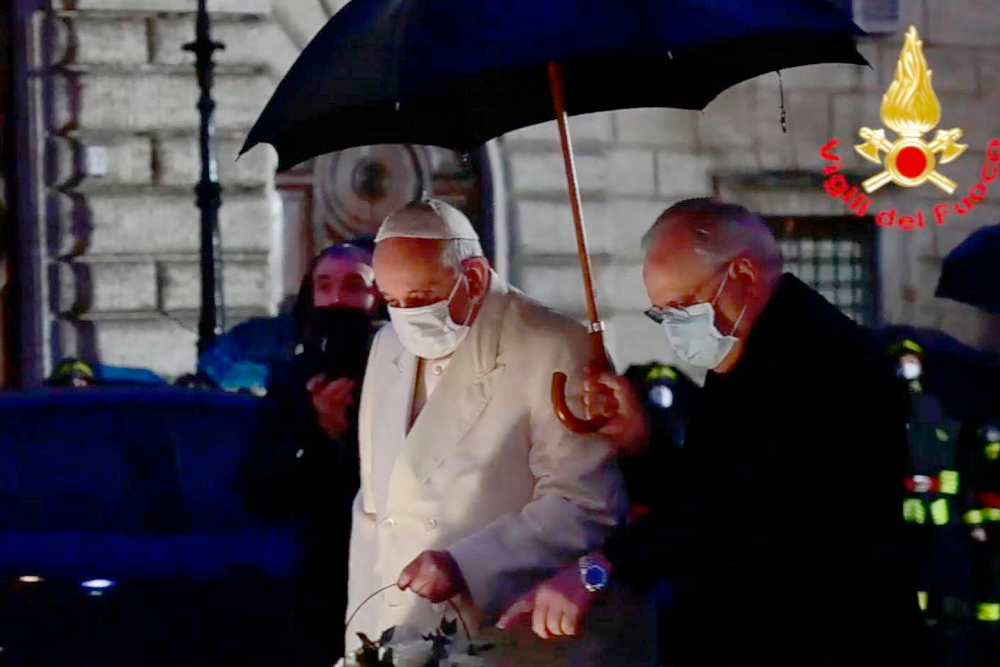
Pope Francis wears a face mask as he arrives at the Spanish Steps in Rome, Tuesday, Dec. 8, 2020. Pope Francis has made a surprise early morning visit to the Spanish Steps in Rome to pray for people struggling in the pandemic. The Vatican last week said Francis, due to social distancing concerns, was canceling the traditional Dec. 8 afternoon visit to the square that draws big crowds. Instead, on Tuesday, Francis popped up in the square at the foot of the Spanish Steps at 7 a.m., two hours after the end of Italy's overnight curfew. (Vigili del Fuoco via AP)
Pope Francis will celebrate Midnight Mass earlier than usual to comply with Italy’s anti-coronavirus curfew and will deliver his Christmas and New Year's blessings in ways that aim to prevent crowds from forming.
The Vatican on Thursday released the pope’s COVID-19 Christmas liturgical schedule. It said the pope’s Dec. 24 Mass — which for years hasn’t been celebrated at midnight at all but at 9:30 p.m. to spare pontiffs from the late hour — would begin at 7:30 p.m. this year.
Italy has imposed a 10 p.m. nationwide curfew, as well as restaurant closures and other restrictions, to try to prevent crowds from forming following a surge of COVID-19 infections and deaths this fall.
Francis’ other Christmas appointments were confirmed. The Vatican said his Dec. 25 noontime speech and blessing will be delivered from St. Peter’s Basilica, but it wasn't immediately clear whether he would pronounce it from the altar — as he did at Easter during the peak of Italy's springtime pandemic — or somewhere else.
Advertisement
Popes have long delivered the Dec. 25 speech from the loggia overlooking the piazza, an appointment that would normally draw thousands of people to the square on Christmas morning. COVID-19 social-distancing restrictions, however, might make such an appointment difficult to manage.
The Italian government has decided to maintain a hard line on anti-virus restrictions over the holidays in a bid to prevent families from gathering in big groups. Public health officials have said inter-familial transmission was one of the biggest drivers of new infections in this second wave, which has killed over 25,000 people.
Francis canceled his weekly public general audiences a few weeks ago after infections started to surge, including a cluster of a dozen cases among the Vatican's Swiss Guards. He now delivers his Wednesday catechism lessons from his library, as he also did during the height of the pandemic's first wave when the Vatican was in full lockdown.
Francis will also celebrate New Year’s Eve vespers and New Year’s Day Mass in the basilica. None of the services is open to the public, however, given social-distancing norms.







